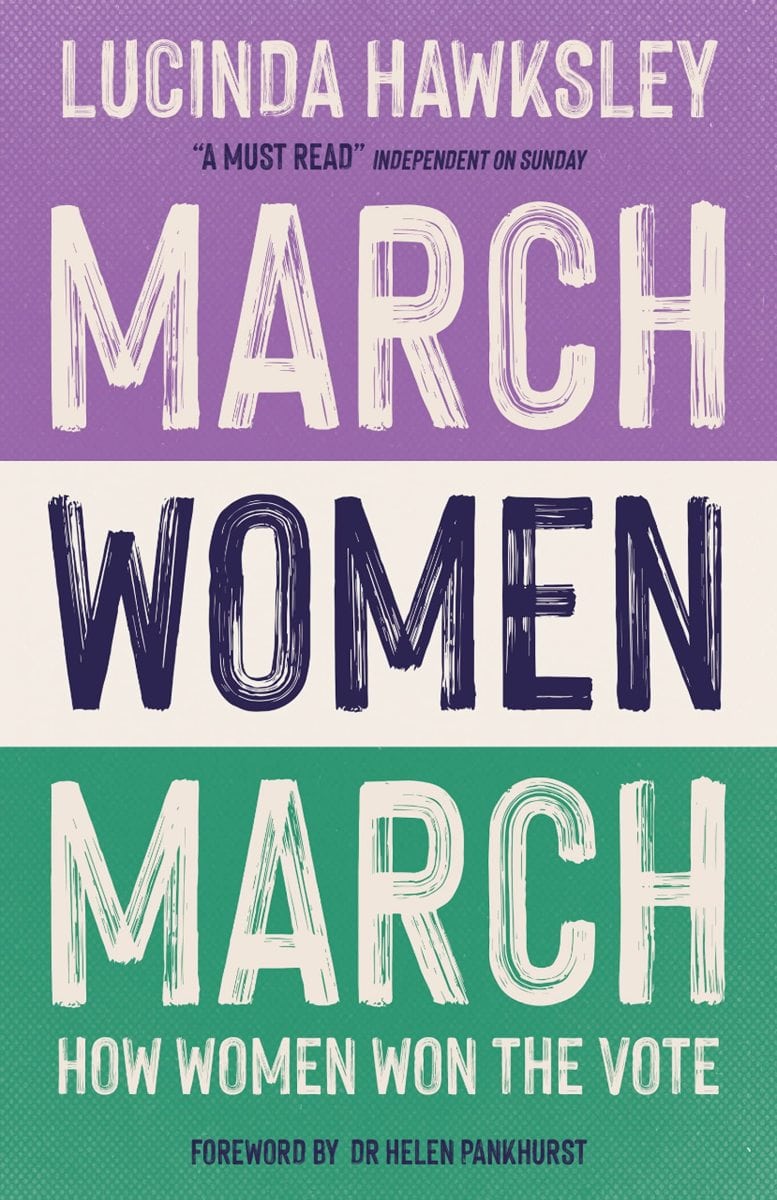
I became interested in the history of the women’s movement when researching my biographies of the artists Lizzie Siddal, Kate Perugini and Princess Louise (my book about her is being published in November 2013). I kept encountering incredible women, who had been pivotal to the cause of gender equality, yet whose names were undeservedly forgotten. I wanted to write a book that would bring them and their achievements back to the fore.
Almost every time I mentioned I was writing a book on the women’s movement, I would get the response, “Oh, yes, the suffragettes?” but there was so much more to the women’s movement than the twentieth century. March, Women, March reveals the voices of the women’s movement, from the time of Mary Wollstonecraft through to when British women finally won the vote. Between the publication of Wollstonecraft’s A Vindication of the Rights of Women in 1792 and the passing of the Equal Franchise Act of 1928, there were so many women (and men) who campaigned tirelessly for equality and justice. This book looks at the lives and work of those who knew they would never see equality in their own lifetimes, but who worked selflessly to ensure that their daughters, granddaughters and women of future generations would.
March, Women, March has been published to commemorate the centenary of the death of Emily Wilding Davison, the suffragette who died from her injuries after being dragged under the king’s horse at the Epsom Derby in 1913. It features diary entries, letters, anecdotes and propaganda – from both the suffrage and anti-suffrage movements – and traces the long, hard journey by which women in Britain moved from being the “property” of their fathers and husbands to gaining greater legal recognition and rights and, finally, to becoming enfranchised citizens with full voting rights.
Reviews
This is a wonderful, inspiring story told with scholarship, passion & wit. It shows how long the suffrage struggle has been; I learned much I didn’t know & read it in one sitting. Gripping, surprising & very enjoyable
Miriam Margolyes
Every home should have this book. I want my sons to read it.
Lynn Parsons, Smooth Radio
Lucinda Hawksley’s March, Women, March will prove invaluable for historians of the future, telling the story of the women’s movement from the publication of Mary Wollstonecraft’s A Vindication of the Rights of Women to the arrival of the vote in 1928. In clear and vivid terms, it uses letters, diaries and reminiscence to tell its tale, perfectly catching the confusion of the times, when the Pankhursts were divisive figures, described by the writer Rebecca West as carrying out a programme of massive vandalism that would push the campaign for the vote backwards.
Sarah Crompton, Daily Telegraph ‘Culture’
This is a marvellous book that I would highly recommend to anyone interested in women’s history and the fight for equality and I will definitely encourage the girls I’ve worked with on ‘Fight for the Right’ to read it…. The tales Hawksley recounts have much relevance and resonance for women today.
Nicola Gauld from ‘Fight for the Right’
By taking a light touch and using the voices of the movement and its opponents to bring human experience to the historical facts, Hawksley has produced an accessible and engaging guide to the original women’s movement.
Daily Telegraph (book review)
Hawksley tells the stories of the women who fought for equality, including those who changed the laws about divorce and child custody. A must-read, regardless of gender.
Independent on Sunday